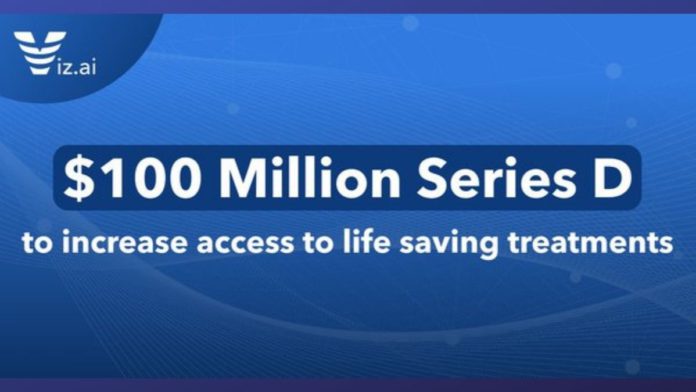Medical imaging and emergency treatment solutions providing company Viz.ai raises $100 million in its recently held series D funding round led by Tiger Global and Insight Partners.
Multiple other investors such as Scale Ventures, Kleiner Perkins, Threshold, GV (formerly Google Ventures), Sozo Ventures, CRV, and Susa also participated in the funding round.
The new funding was raised by Viz.ai at a whopping valuation of $1.2 billion. According to the company, it will use the fresh funds to support its rapid growth, expand the Viz Platform to detect and triage additional diseases, and increase its global customer base.
Read More: Elon Musk to NOT join Twitter’s Board, says CEO Parag Agrawal
“Viz.ai is the stand-out AI healthcare company; they are first-in-class in intelligent care coordination, with a solid foundation of clinical evidence supporting the value delivered to healthcare providers and patients,” said John Curtius, Partner at Tiger Global.
Additionally, Viz.ai also announced the launch of its new artificial intelligence-powered life science platform. The novel AI platform will revolutionize the clinical trial and treatment methods, claims the company.
Viz.ai is currently hiring clinical, product, engineering, and business minds to support growth in multiple locations across the globe.
United States-based technology company Viz.ai was founded by Chris Mansi, David Golan, and Manoj Ramachandran in 2016. The firm specializes in developing deep learning and artificial intelligence solutions to help healthcare practitioners better treat their patients. To date, Viz.ai has raised more than $251 million from multiple investors over seven funding rounds.
Co-founder and CEO of Viz.ai, Chris Mansi, said, “We will continue to invest heavily in cutting edge technology and services to integrate deeply into the clinical workflow, allowing us to automate disease detection, and increase diagnostic rates and enhance workflows across the entire hub and spoke health system.”
Chris further added that the company is committed to providing better, faster, and more equitable access to life-saving treatments to patients.


